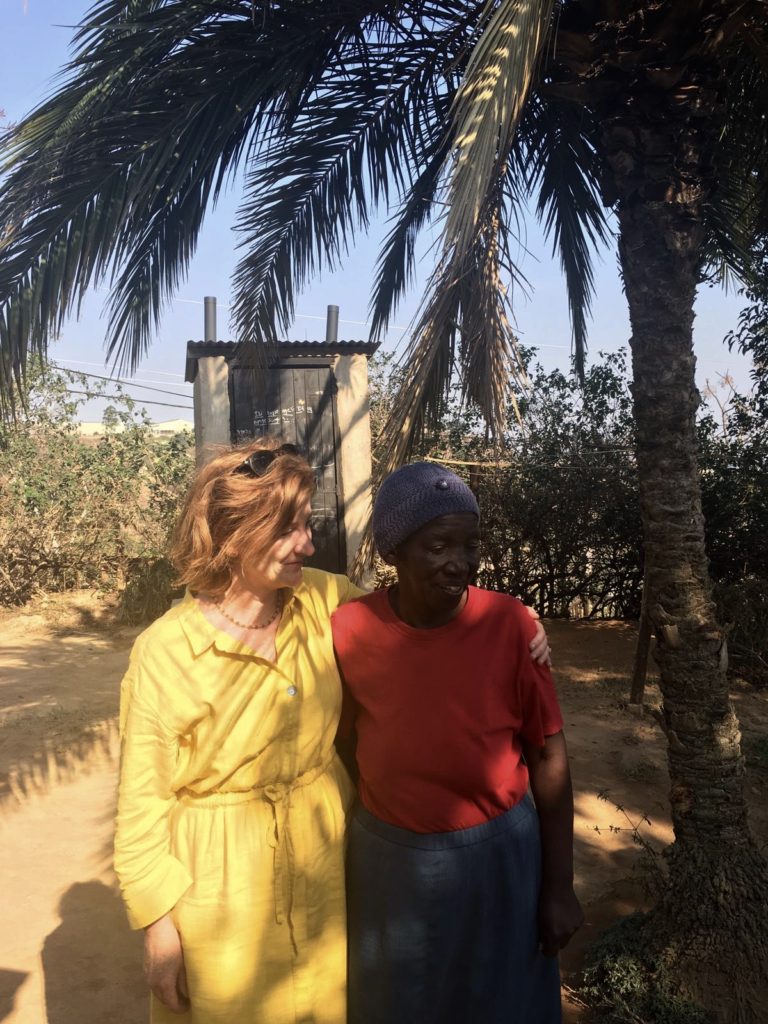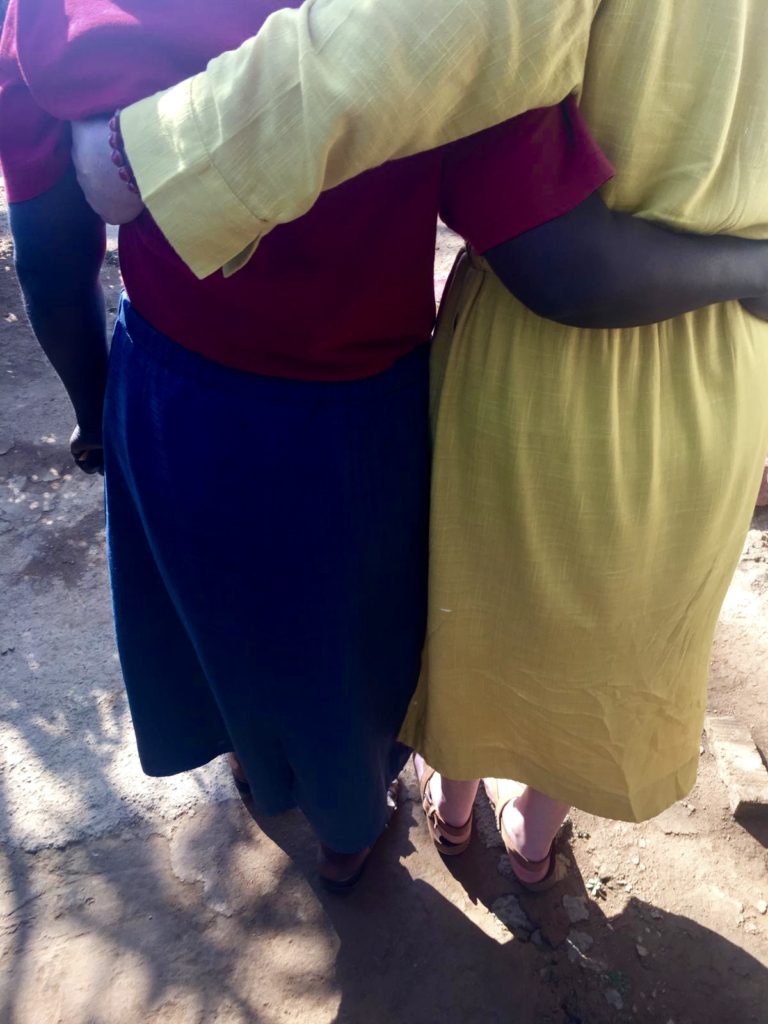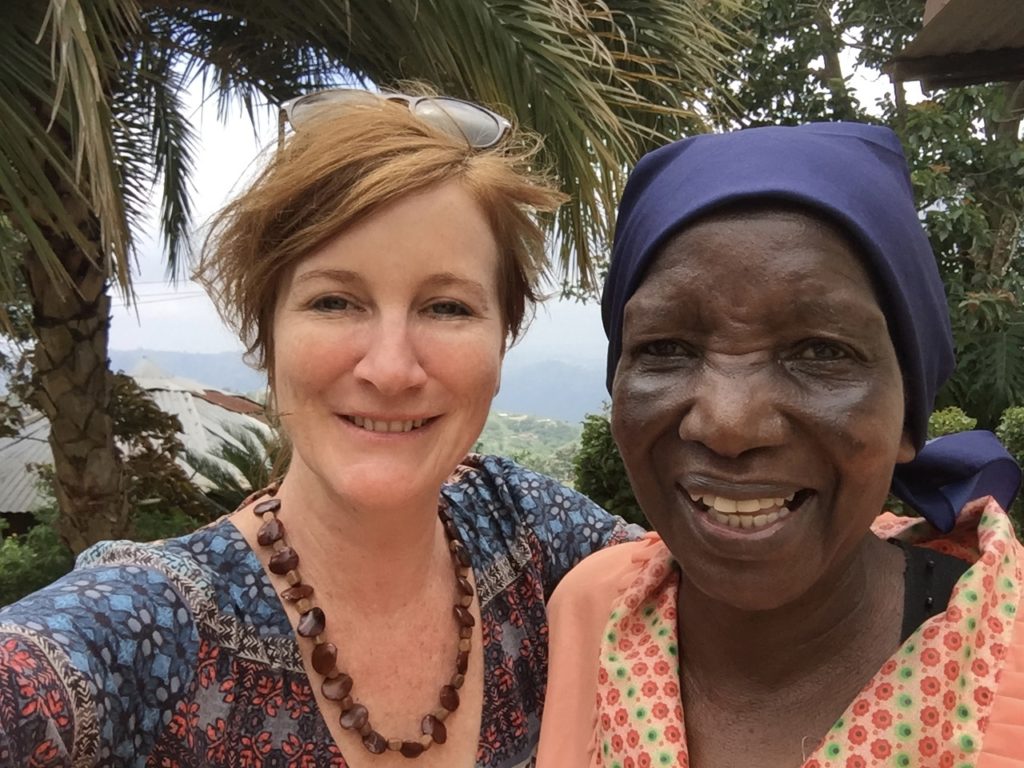This is difficult. Exactly a month after I last saw my beloved Margaret Ncgobo, she is dead.
I had visited her, as I always do when I am in South Africa, before we headed off to Kwa-Zulu Natal’s North Coast for the last week of our holiday. We were, in the words of Graham Neame, a family friend, historian and activist, ‘the rich at play’.
Before we left for the coast, we made the journey to Margaret’s house. which sits at the edge of a lush, humid valley that overlooks the winding magnificence of the Umzinduzi river. As we drove up to the potholed entrance to her home, she was standing in the garden waiting, a shadow of her former self.
‘I’m not good Pam, I’m not good,’ she said smiling weakly, as I climbed out the car.
Bearing in mind that Margaret has always been a hypochondriac, I knew this time she really wasn’t well. In fact, I knew she was dying.

Patrick, her only child, explained that Margaret had been diagnosed with a stroke in January. They had taken her to RK Khan, a government hospital in KwaZulu Natal, where she stayed for two nights. Since then, she had been making the tortuous journey to the hospital on public transport for monthly check ups, but there had been no improvement.
In desperation, and frustrated by the inconsistency and quality of care, Patrick and Priscilla, Margaret’s daughter-in-law, took her to see a private doctor in Durban. This charlatan took her off both sets of medication, a blood thinner and heart pills, and prescribed a range of costly herbal pills – cannabis, ginseng, ginko, garlic. Patrick showed me the empty plastic tubs, and said sadly: ‘She is too young to die Pam, too young.’
At just 68, Margaret was too young.

I drove away that morning with a sick-sad, uneasy feeling in my stomach. I knew that Margaret needed to see a doctor urgently, but I also knew that private healthcare in South Africa costs a fortune.
A few days after leaving Margaret, breathless and frail, I phoned my cousin, a doctor, for advice. Having recently read This is Going to Hurt, the Diary of a Junior Doctor, I hesitated to call her as I was conscious of the fact that she probably has family and friends asking for free advice constantly. She was understanding, helpful and pragmatic, and after hanging up I made an appointment for Margaret to see my mother’s GP.
That afternoon, as I was having acrylic tips stuck to my bitten nails, the habit of a lifetime, I knew I had done the right thing. If I could afford to have my f-ing nails done, I could afford to take Margaret to a private doctor. It was the very least I could do.
Special relationship
You see Margaret worked for my family as a ‘maid’ – basically a cleaner and housekeeper – for over 35 years. Unlike many South African ‘domestic workers’, however, who lived on the property and worked full time, and many still do, Margaret didn’t. My mother was a single parent and could not afford that.
Although we all loved Margaret, I believe that I had a particularly special relationship with her. My mother ran her own business, a florist shop, just up the road from our home, and as teenagers both my brothers went off to boarding school in Durban. This meant that on two afternoons a week I arrived home to an empty house. When Margaret was there, however, she would welcome me home as if I was her own child. She would get out the biscuit tin or make me a jam sandwich and a cup of tea. My mother always left meat and vegetables for Margaret to cook for herself on the days she worked for us, and sometimes she would share her grub. I particularly liked Mfino, a fry up of spices, onions and the leaves of pumpkins, which she grew on her plot at home. When Margaret had made Mfino, I could smell it all the way from the top of the redbrick pathway that led to the front door of my mother’s glorious sub-tropical garden.
On one afternoon a week, on the day the beds were changed, the ritual was that I would help her fold the sheets. We would stand in the living room and laugh as we shook out the Irish linen, corner-to-corner, pull it this way, stretch it that way, fold it once, fold it twice.
Bad news
Just over a month ago, I made the hour-long drive from the North Coast to the Inanda valley, collected Margaret and Priscilla, and took her to see my mother’s GP. As I filled out the form with her personal details, there were blank or benign stares from people waiting for their turn to be called. South Africa’s first non-racial democratic election took place in 1994, and still that doctor’s waiting room was entirely whites only.
Margaret seemed uncomfortable. Although it was a warm day she was shivering, and I wondered if I had done the right thing. I just want to go upstairs, I’m tired, she kept saying.
My mother’s GP examined Margaret thoroughly and could not have been kinder. But I knew from his look that the news wasn’t good. Thing is, he said, she definitely hadn’t had a stroke – the diagnosis made by doctors at RK Khan, a hospital named after an Indian philanthropist and humanitarian, who would be turning in his grave. No, Margaret’s heart was failing and yes, she most certainly shouldn’t be on a blood thinner, but she absolutely should be on the heart pills! He needed to do an ECG, just to check how serious it was.
As Priscilla helped Margaret get dressed, the sister who did the ECG looked at me gravely and, although we both knew the answer, asked: ‘Does she have private healthcare?’
I could not afford to have Margaret admitted to a private hospital and so there were two options. She must go back onto the heart pills and rest at home, or return to RK Khan and stablise under medical supervision. ‘Both options are dangerous,’ said my mother’s doctor, ‘but if it was my mother I would be taking her to hospital.’
In the car, I explained the situation to Priscilla and Margaret. Margaret was absolutely clear: ‘I’m not going back to RK Khan Pam. I’m going upstairs. I need to rest.’ She knew she was dying and she wanted to die at home.
On the last visit to see her in 2018, she wasn’t well and I made a beef stew in the modest kitchen. ‘Now it’s my turn to cook for you,’ I said, and we laughed. When I left that day her last words: ‘I’m not going in the ground Pam until you come home for good.’

My visit in 2018
When I left Margaret last month, I knew it would be the last time I saw her. Did I do enough? Did I do enough to save her? You can say what you like but no. No, I did not. But I feel spitting mad that thanks to rampant government corruption and corporate exploitation, Margaret and the vast majority of South Africa’s population, still don’t have access to a basic human right – decent, affordable healthcare.
I’m spitting mad and I’m heartbroken. But I can’t fly ‘home’ to see you go in the ground Margaret. So I’m writing this to say I’m sorry. Hambe kahle u mama wa mi. Rest in Peace.